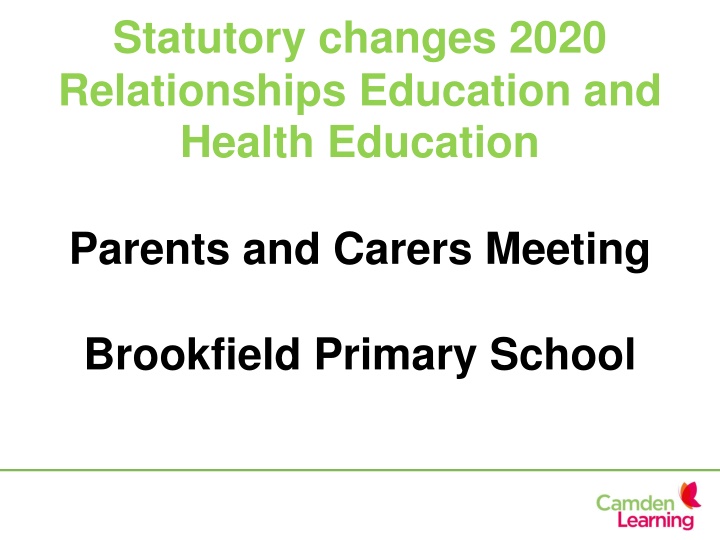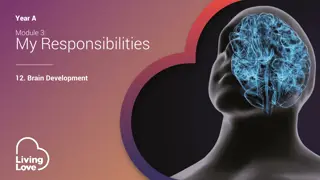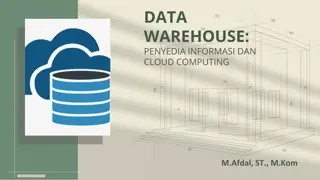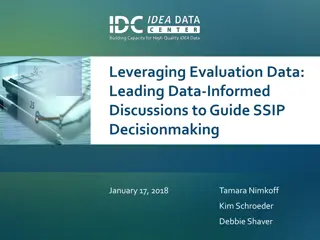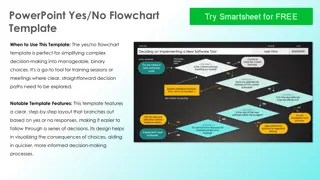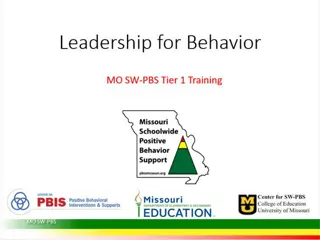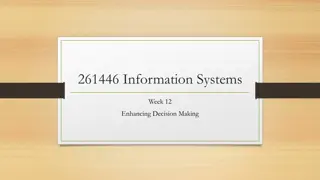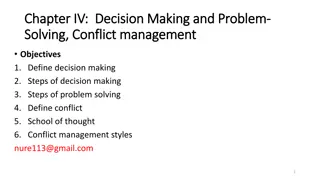Developing Local Data Teams for Informed Decision Making
Learn about the components of effective data teams and how they can help in planning and decision-making for early childhood programs. Explore examples from Connecticut and understand the importance of aligning values and celebrating diverse perspectives within a data team.
Download Presentation

Please find below an Image/Link to download the presentation.
The content on the website is provided AS IS for your information and personal use only. It may not be sold, licensed, or shared on other websites without obtaining consent from the author.If you encounter any issues during the download, it is possible that the publisher has removed the file from their server.
You are allowed to download the files provided on this website for personal or commercial use, subject to the condition that they are used lawfully. All files are the property of their respective owners.
The content on the website is provided AS IS for your information and personal use only. It may not be sold, licensed, or shared on other websites without obtaining consent from the author.
E N D
Presentation Transcript
Statutory changes 2020 Relationships Education and Health Education Parents and Carers Meeting Brookfield Primary School
Relationships and Health Education and our School Values As a school we value diversity and foster mutual respect, modelling and inspiring values in pupils such as respect, empathy and honesty. These underpin and inform the relationships we have, between pupils and between adults and pupils We believe that the Equality Act (2010) provides a framework to support our commitment to valuing diversity, tackling discrimination, promoting equality and fostering good relationships between people. It also ensures that we continue to tackle issues of disadvantage and underachievement of different groups.
In this meeting we will cover What the statutory changes are The key aspects of the new government guidance What schools will need to do to get ready for September 2020 Our plans
What are the curriculum changes? These subjects will be compulsory in all schools* from September 2020 Health Education in primary and secondary Relationships Education in primary Relationships and Sex Education (RSE) in secondary *All schools includes free schools, academies, Independent and faith schools
Why is the curriculum changing? The government s guidance was last updated almost 20 years ago (2000) and it needs to be more relevant for our children living in the 21st century To recognise the crucial role that these subjects make to keeping our children healthy, happy and safe
Statutory Health Education 8 Topics Mental wellbeing Internet safety and harms Physical health and fitness Healthy eating Drugs, alcohol and tobacco Health and prevention Basic first aid Changing adolescent body
Statutory Relationships Education 5 Topics Families and people who care for me Caring friendships Respectful relationships Online relationships Being safe
What about Sex Education? The government is NOT making sex education statutory in primary schools Aspects of the Science National Curriculum that cover the biological aspects of sex education will continue to be statutory Puberty will be included in statutory Health Education
What about Sex Education? A primary school can decide to teach sex education in addition to what is taught in statutory science and health education
At Brookfield our Sex Education covers the following objectives To know the difference between an adult intimate/loving relationship and other types of relationships To know how a baby is made (sexual intercourse) To know what pregnancy means To know how a baby is made and grows (conception and pregnancy) To know what conception and pregnancy are
Do parents have the right to withdraw children? Parents cannot withdraw from statutory Science Relationships Education Health Education Parents can only withdraw from sex education that is in addition to statutory Science or Health Education
Key Aspects of DfE Guidance Schools decide what to teach at what age and how they deliver the content, taking account of parents , staff and governors views Planned programme, high quality teaching which takes account of the needs of vulnerable pupils and the religious background of pupils Assess pupils progress Ensure content is accessible to all pupils including SEND
Key Aspects of DfE Guidance Comply with the Equality Act; promote equality, respect difference and prevent prejudice and discrimination Expect all schools to teach LGBT content eg different families The new subjects are designed to foster respect for others and for difference, and educate pupils about healthy relationships and teach about the society in which they are growing up
Key Aspects of DfE Guidance Produce a Relationships Education Policy and consult with parents and carers, staff and governors Ensure that parents and carers know what will be taught and when (particularly sex education before Y6) Suggest offer support to parents and carers to talk to their child about sex education and how to link this with what is being taught in school
Is this very different compared to now? Our comprehensive PSHE already covers most of the topics that will become statutory; healthy eating physical activity drugs, alcohol and tobacco education sex and relationships education safety (including bullying and online safety) mental health and wellbeing We will need teach about basic first aid and more about online friendships and manners and courtesy.
Relationships Education Policy Definition of Relationships Education Information about why parents do not have the right to withdraw their child What is taught, how it is taught and who teaches it How the subject is monitored and evaluated Date policy will be reviewed If schools choose to teach any sex education in addition to Science and Health Education, a policy will include: Definition of sex education Parents right to withdraw
What schools need to do to get ready for September 2020 Allocate a member of staff to oversee the changes 1. Curriculum Review the current PSHE curriculum alongside the new requirements and identify any gaps Identify any resources needed to reflect the new requirements 2. Staff Identify training and support needs
What schools need to do to get ready for September 2020 3. Relationships Education Policy Produce a Relationships Education policy Consult with parents, staff and governors (and pupils where relevant) 4. Update School Community Newsletter Updated curriculum plans and policy on website
Next Steps Over the coming weeks and months we will: Publish a draft Relationships Education policy on the school website for parents and carers to read Hold a consultation meeting for parents and carers to give feedback on the draft policy Please email s.quested@brookfield.camden.sch.uk with any questions you have in advance of the meeting or if you would like to comment, but are unable to attend. Talk to Y6 pupils and School Councillors about their experience of PSHE at Brookfield Consult with staff
Next Steps Continue to hold information meetings for parents and carers in years 4, 5 and 6 prior to children taking part in lessons about puberty or sex education Publish the finished policy on the school website Provide INSET for staff in the Summer term with reference to Camden s new Scheme of Work for PSHE Ensure that curriculum plans for each year group are published on the school website in September for the start of the school year.
